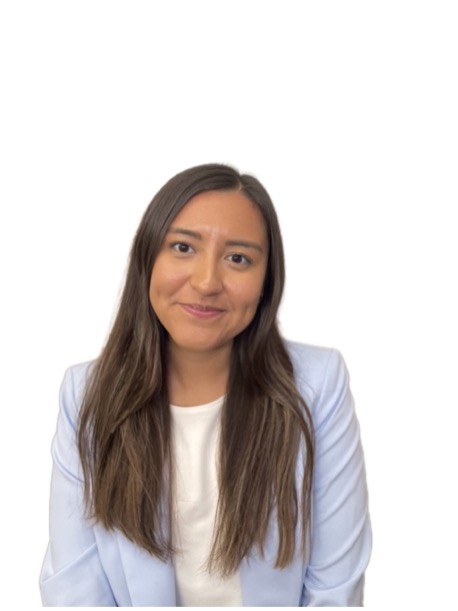2024 Outstanding Student Achievement Award: Master’s Research Category
 Melanie Delgado ’24
Melanie Delgado ’24
Melanie Delgado is a May 2024 master’s candidate in the Master of Science in Medical Science (MAMS) program. She matriculated into the MAMS program in Fall 2022.
Melanie works for Michael Levy, MD, PhD, the director of the Neuroimmunology Clinic and Research Laboratory at Massachusetts General Hospital. There, she oversees a clinical trial investigating a new drug in the treatment of anti-NMDAR encephalitis. As part of her master’s thesis, Melanie also developed a cross-sectional study to better understand the use, dosing and adverse effects of medical marijuana in the symptom management of rare neuroimmune diseases.
Melanie will soon present her data at the 2024 European Committee for Treatment and Research of Multiple Sclerosis (ECTRIMS) Conference in Copenhagen, Denmark. Her research also won her the Outstanding Student Achievement Award in the Master’s Research Category. Read more about her work below!
Can you please describe the research project that led to your recognition with this award?
I currently work for Dr. Michael Levy at Massachusetts General Hospital (MGH), Division of Neuroimmunology & Neuroinfectious Disease. I partake in a few projects that I am very passionate about!
One of them is a clinical trial for a promising new drug called Inebilizumab. Funded by the National Institutes of Health (NIH), this project is one of the biggest trials I have overseen. Working with sites both nationally and internationally, I oversee patient enrollment in a clinical trial investigating Inebilizumab in anti-NMDAR encephalitis. I assist with motor and cognitive tests, perform recruitment screenings and oversee blood collection samples. I love working alongside a spectrum of healthcare workers, from translational research nurses, to attendings and multiple physicians from the psychiatry and neurology teams. I feel privileged to work in an environment where I am constantly learning and teaching, nurturing those in need and striving to understand patients as individuals, rather than just diagnoses.
The second project entails my BU thesis. I developed a cross-sectional study seeking to better understand patterns of use, dosing and adverse effects of medical marijuana in symptom management of rare neuroimmune diseases such as neuromyelitis optica spectrum disorder (NMOSD), myelin oligodendrocyte glycoprotein antibody disease (MOGAD), acute disseminated encephalomyelitis (ADEM) and transverse myelitis (TM). After learning how to code on REDCap, I created a fully anonymized electronic questionnaire that was disseminated nationally to patients with these rare neuroinflammatory diseases.
What sparked your interest with conducting research, and how did you choose this area of focus for your project?
The opportunity to engage with patients’ life stories and better understand the human condition sparked my interest in medicine and advancing the field of neurodegenerative diseases. I grew up volunteering at an Alzheimer’s home as a child, and I further explored the field of neurology throughout high school and college by working at the National Institutes of Health (NIH) for about seven years. Wanting to expand my clinical neuroimmunology education during my time at Boston University, I joined Dr. Michael Levy’s neuroimmunology & neuroinfectious clinical research team.
How do you believe your research is significant to your field and/or addresses a particular issue or gap in knowledge?
The results of this NMDA Encephalitis clinical trial will determine whether this drug may become a promising therapeutic monoclonal antibody for the treatment of anti-NMDAR encephalitis. The study will impact patient care and help facilitate future clinical trials for autoimmune encephalitis.
As for the cannabis survey study, this topic has not been explored for the rarer neuroinflammatory conditions. Our clinical experience with NMOSD, MOGAD, ADEM and TM, as well as information shared with us by patient advocacy groups, suggest even higher usage rates amongst this population, seemingly driven by poorer response to traditional therapies. Many patients ask their providers about cannabis use; however, there is currently no published information regarding the existing patterns of use, dosing, experienced adverse events or motivations for use in these patient populations. This study is a survey aimed at addressing some of these gaps.
Can you discuss any challenges you’ve faced during the research project and how you overcame them?
The biggest challenge I experienced was excluding a potential participant who was only 20 years old. After careful review, our team decided that the patient’s deteriorating condition necessitated treatment with a therapy that would exclude her from the encephalitis clinical trial. This taught me the importance of maintaining rigorous inclusion criteria, engaging in ethical discussions and the value of multidisciplinary teams in patient care.
Looking ahead, do you have any plans to further explore the topic of your research?
I was invited to present my data in one of the world’s largest neuroimmune research conferences, called ECTRIMS, in Copenhagen, Denmark. I am so excited to not only share my research findings, but also to learn from international neuroimmunologists who are equally passionate about advancing treatments for rare neurological disorders.
Because clinical research has been a big part of my journey thus far, I have no doubts that I will pursue clinical research in the next chapter of my life as I begin a career in healthcare. Armed with a foundation in understanding clinical operations and biostatistics, I am eager to help patients with rare neuroimmune diseases through research.